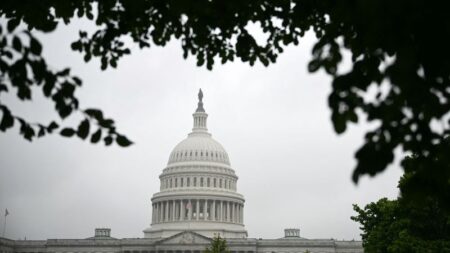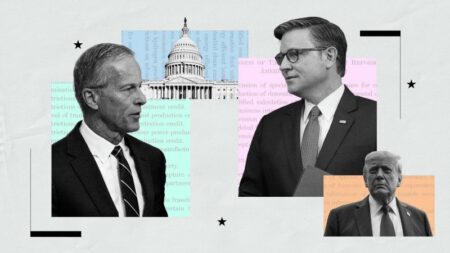In recent political discourse, a significant shift has occurred regarding the welfare reform plans set forth by Prime Minister Keir Starmer. Following a backlash from backbench Labour members, Starmer made a remarkable concession in the face of dissent, announcing that the stricter criteria for benefits would only affect new claimants. This decision reflects the increasing tension within the Labour Party, illustrating how internal divisions can erupt when policies resonate unfavorably with party members.
The frustration within Labour ranks is palpable. One MP expressed their ire with the blunt assessment, “What an absolute bloody shambles!” This sentiment encapsulates the broader discontent among backbenchers who have felt sidelined in dialogue with the leadership, indicating a tangible anger brewing within the party. While some members acknowledged Starmer’s concessions as a positive starting point, many remain skeptical, viewing the changes as mere “tinkering with a broken bill.” This skepticism points to deep-rooted concerns that the reforms may ultimately fall short of genuinely addressing the welfare needs of constituents.
Debbie Abrahams, the chair of the Work and Pensions Select Committee, highlighted the contentious nature of the concessions, commenting, “The concessions are a good start… However, there are still concerns about new claimants.” Her stance illuminates a persistent unease among Labour MPs about the implications of the new policies, particularly regarding how they would affect those who are just entering the benefits system. Furthermore, groups like Disability Labour continue to advocate for outright opposition to the proposed reforms, adding to the dissonance within the party.
As the Labour Party grapples with these internal challenges, the mood among backbench MPs leans toward displeasure. Many feel disregarded by the leadership, characterizing sessions with prominent figures at Downing Street as opportunities for being managed rather than genuinely listened to. Such sentiments underscore a broader demand for more inclusive dialogue and consideration of grassroots concerns. The discontent extends to perceptions of the Prime Minister and Chief of Staff Morgan McSweeney, with members reflecting on the leadership’s apparent miscalculations regarding the resolve of new MPs to voice their opposition.
The contentious nature of these welfare reforms raises critical considerations about the Labour Party under Starmer’s leadership. His recent handling of the backlash may reflect broader strategic goals, but it also risks alienating a segment of the party’s base. Namely, there are ongoing fears that the fiscal discipline being emphasized by Chancellor Rachel Reeves will prompt a consistent search for cuts, potentially leading to further discontent in the future. While government voices assert that Starmer and Reeves embody the responsible stewardship of public finances, dissenters inside Labour warn that such a focus may inadvertently harm its core support.
Looking at the bigger picture, as the Labour Party approaches the one-year mark under Starmer’s leadership, there is growing pressure for clarity and direction. The Prime Minister’s recent comments in an interview reflect a struggle with defining both his principles and the party’s direction. Criticism has arisen from both ends of the ideological spectrum, questioning his commitment to those principles and whether he adequately represents the voices within the party.
Starmer’s regret over past statements regarding immigration, notably calling the UK an “island of strangers,” highlights a critical challenge in reconciling party image with broader societal issues. The outcry from within illustrates that Labour must not only manage its external narratives but also unify its critical internal voices, a task that will prove daunting as the party navigates its political landscape. This intense scrutiny and potential fractures present a pivotal moment for Starmer, necessitating astute leadership to balance competing interests while striving to maintain political integrity and support. Ultimately, how he addresses these issues in the coming months will be indicative of his political acumen and the future trajectory of the Labour Party.











